
Bangkok: The Vibrant Heart of Thailand
Bangkok, the capital city of Thailand, is a bustling metropolis known for its vibrant street life and rich cultural landmarks. This city seamlessly blends the old with the new, offering a unique experience to every traveler. From serene temples to lively markets, Bangkok never ceases to amaze. One of the city's most iconic sights is the Grand Palace, a sprawling complex that was once the home of the Thai king. Nearby, you can find Wat Phra Kaew, the Temple of the Emerald Buddha, which is considered the most sacred Buddhist temple in Thailand. Just a short boat ride away on the Chao Phraya River lies Wat Arun, or the Temple of Dawn, which offers breathtaking views, especially at sunset. For those looking to indulge in local cuisine, Bangkok is a food lover's paradise. Street food stalls line the roads, offering everything from spicy noodles to sweet mango sticky rice. Don't miss visiting the bustling Chatuchak Weekend Market, where you can shop for souvenirs, clothes, and enjoy delicious Thai snacks. Bangkok's nightlife is equally exciting, with rooftop bars offering panoramic views of the city and vibrant nightclubs where you can dance the night away. Whether you're exploring the historical sites, enjoying the local food, or experiencing the nightlife, Bangkok promises an unforgettable adventure.
Local tips in Bangkok
- Use the BTS Skytrain to navigate the city quickly and avoid traffic jams.
- Dress modestly when visiting temples; shoulders and knees should be covered.
- Bargain when shopping at markets to get the best prices.
- Try to learn a few basic Thai phrases; locals appreciate the effort.
- Stay hydrated; Bangkok's tropical climate can be quite hot and humid.
Neighbourhoods in Bangkok
Bangkok: The Vibrant Heart of Thailand
Bangkok, the capital city of Thailand, is a bustling metropolis known for its vibrant street life and rich cultural landmarks. This city seamlessly blends the old with the new, offering a unique experience to every traveler. From serene temples to lively markets, Bangkok never ceases to amaze. One of the city's most iconic sights is the Grand Palace, a sprawling complex that was once the home of the Thai king. Nearby, you can find Wat Phra Kaew, the Temple of the Emerald Buddha, which is considered the most sacred Buddhist temple in Thailand. Just a short boat ride away on the Chao Phraya River lies Wat Arun, or the Temple of Dawn, which offers breathtaking views, especially at sunset. For those looking to indulge in local cuisine, Bangkok is a food lover's paradise. Street food stalls line the roads, offering everything from spicy noodles to sweet mango sticky rice. Don't miss visiting the bustling Chatuchak Weekend Market, where you can shop for souvenirs, clothes, and enjoy delicious Thai snacks. Bangkok's nightlife is equally exciting, with rooftop bars offering panoramic views of the city and vibrant nightclubs where you can dance the night away. Whether you're exploring the historical sites, enjoying the local food, or experiencing the nightlife, Bangkok promises an unforgettable adventure.
When is the best time to go to Bangkok?
Iconic landmarks you can’t miss
The Grand Palace
Explore the majestic Grand Palace in Bangkok, an architectural marvel and cultural landmark showcasing Thailand's rich royal heritage and artistry.
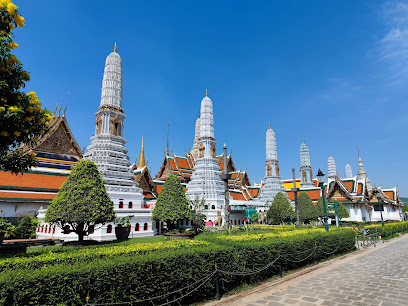
Chatuchak Weekend Market
Explore the vibrant Chatuchak Weekend Market in Bangkok, a unique shopping destination filled with local crafts, delicious food, and a lively atmosphere.
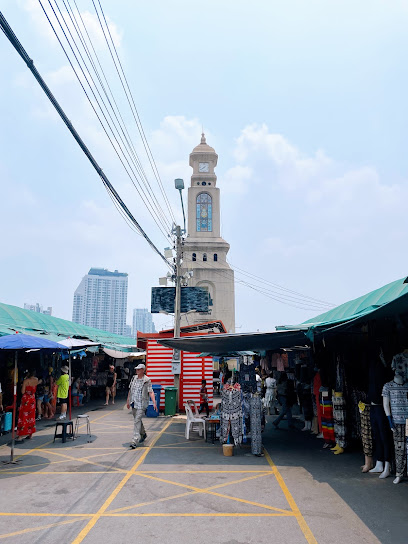
Wat Arun Ratchawararam Ratchawaramahawihan
Experience the captivating beauty of Wat Arun, Bangkok's Temple of Dawn, where stunning architecture meets serene riverside tranquility.
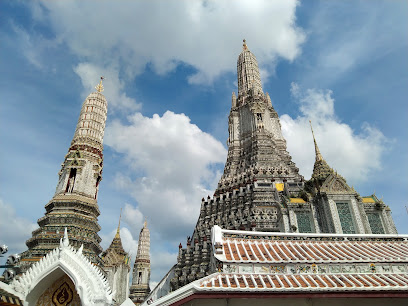
The Temple of the Emerald Buddha
Discover the sacred beauty and cultural significance of the Temple of the Emerald Buddha, a must-see for every traveler in Bangkok.
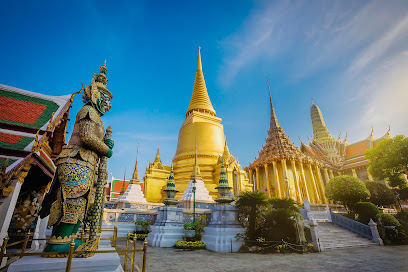
Lumphini Park
Experience the lush tranquility of Lumphini Park, Bangkok's urban oasis, perfect for relaxation, recreation, and cultural immersion.
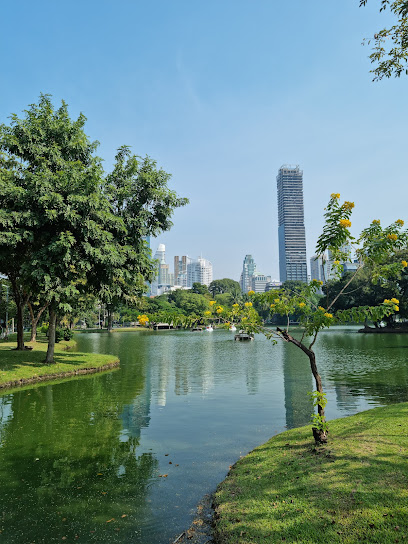
Wat Phra Chetuphon Wimon Mangkhalaram Rajwaramahawihan
Discover the spiritual heart of Bangkok at Wat Pho, home to the Reclining Buddha and a rich tapestry of Thai culture and artistry.
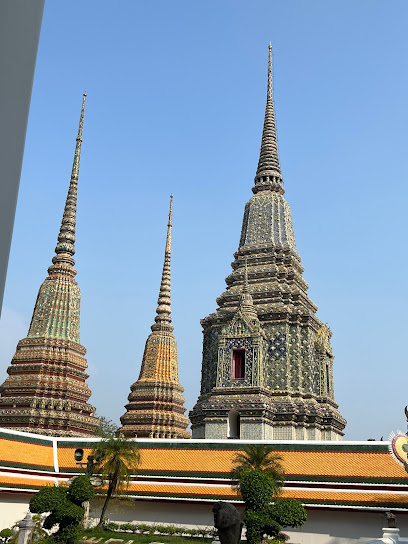
Sanam Luang
Discover the serene beauty and cultural significance of Sanam Luang, Bangkok's iconic royal field surrounded by historic landmarks.
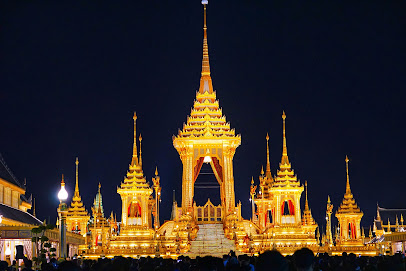
Wat Traimit Withayaram Worawihan (Golden Buddha)
Discover the majestic Wat Traimit Withayaram Worawihan, home to the Golden Buddha, in the vibrant heart of Bangkok’s cultural landscape.
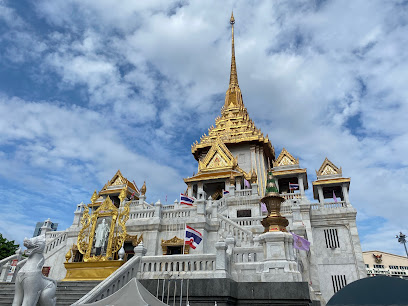
King Power Mahanakhon
Discover the breathtaking views of Bangkok from King Power Mahanakhon, Thailand's tallest building offering luxury shopping, dining, and an unforgettable observation deck experience.
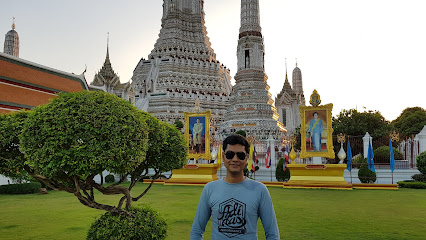
SEA LIFE Bangkok Ocean World
Explore the vibrant underwater world at SEA LIFE Bangkok Ocean World, where adventure and marine education come together in a spectacular setting.
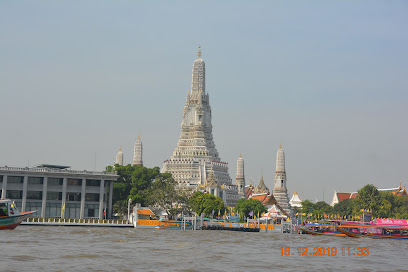
Bangkok Art and Culture Centre
Explore the vibrant world of contemporary art at the Bangkok Art and Culture Centre, a cultural hub that showcases Thailand's artistic spirit.
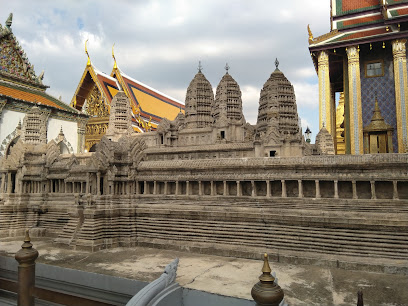
Jim Thompson House Museum
Explore the Jim Thompson House Museum in Bangkok, a serene heritage site showcasing traditional Thai architecture and the legacy of the silk industry.
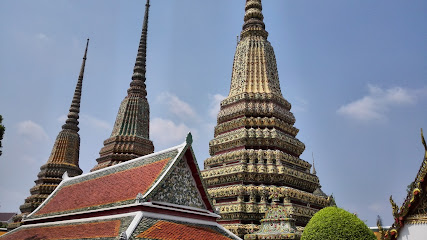
Victory Monument
Explore Victory Monument: A historical landmark and vibrant hub in Bangkok, surrounded by markets and rich local culture.
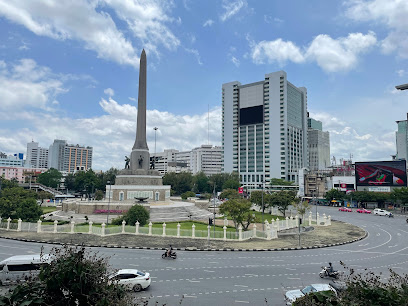
Bangkok City Pillar Shrine
Explore the sacred Bangkok City Pillar Shrine, a serene oasis of spirituality and art in the heart of Thailand's vibrant capital.
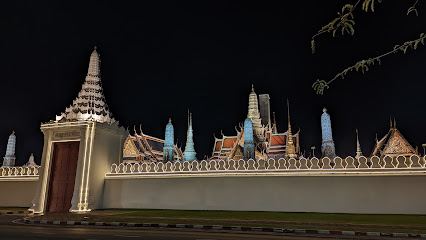
Wat Suthat Thepwararam Ratchaworamahawihan
Explore the serene beauty of Wat Suthat Thepwararam, a stunning Buddhist temple in Bangkok, rich in history and architectural splendor.

Unmissable attractions to see
The Grand Palace
Explore the Grand Palace in Bangkok, a historical and cultural landmark showcasing the rich heritage and stunning architecture of Thailand.
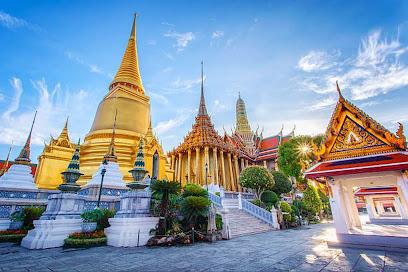
Asiatique The Riverfront
Experience the vibrant nightlife and diverse shopping at Asiatique The Riverfront, Bangkok's premier night market along the Chao Phraya River.
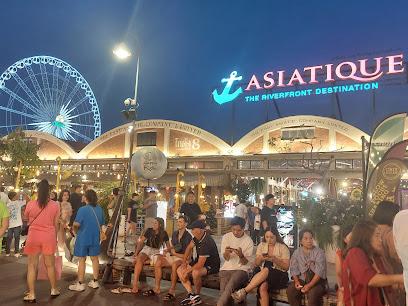
Safari World Bangkok
Explore the wildlife wonders at Safari World Bangkok, where thrilling animal encounters and spectacular shows await every visitor.
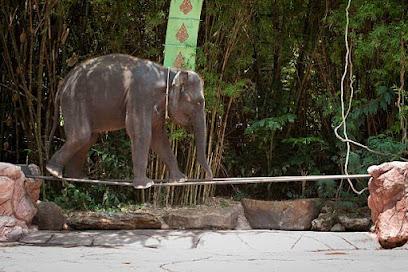
The Temple of the Emerald Buddha
Discover the enchanting beauty and profound spirituality of the Temple of the Emerald Buddha in Bangkok, a symbol of Thailand's rich cultural heritage.
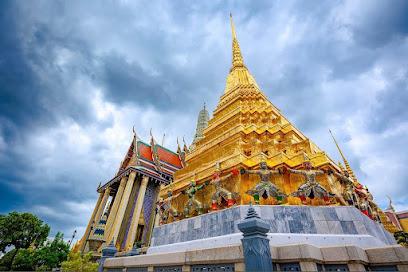
Lumphini Park
Experience the tranquility of Lumphini Park, a lush urban oasis in the heart of Bangkok, perfect for relaxation, recreation, and nature appreciation.
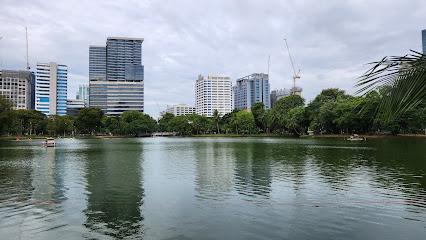
Wat Phra Chetuphon Wimon Mangkhalaram Rajwaramahawihan
Discover the spiritual heart of Bangkok at Wat Pho, home to the magnificent Reclining Buddha and a hub of traditional Thai culture.
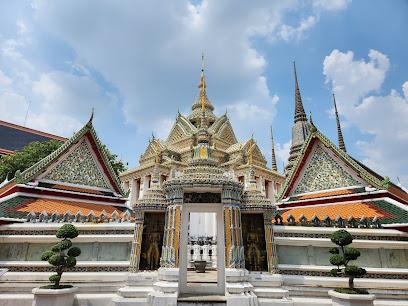
The One Ratchada
Experience the vibrant pulse of Bangkok at The One Ratchada, a bustling night market filled with delicious food, shopping, and local culture.
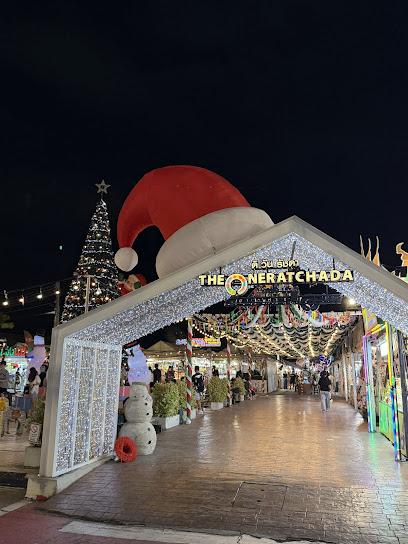
Sanam Luang
Discover the historical significance and cultural vibrancy of Sanam Luang, a central gem in Bangkok’s vibrant landscape.
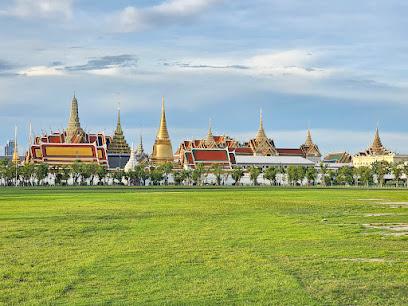
King Power Mahanakhon
Explore King Power Mahanakhon—Bangkok's iconic skyscraper offering breathtaking views, premium shopping, and exquisite dining experiences.
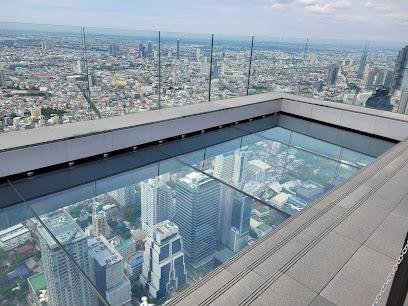
SEA LIFE Bangkok Ocean World
Explore the depths of SEA LIFE Bangkok Ocean World, an incredible aquarium showcasing the beauty and diversity of marine life in the heart of Thailand.
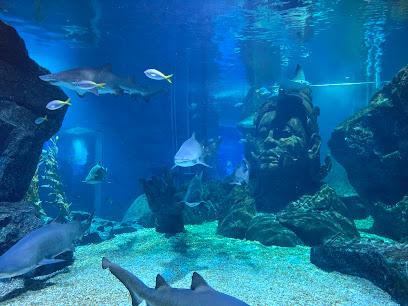
Wat Trai Mit Witthayaram Worawihan
Discover the stunning Wat Trai Mit Witthayaram, home to the world's largest golden Buddha and a cultural gem in Bangkok's vibrant heart.
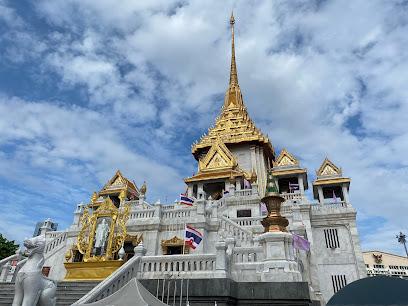
Bangkok Art and Culture Centre
Discover contemporary art and cultural experiences at the Bangkok Art and Culture Centre, a vibrant hub for creativity in Thailand's capital.
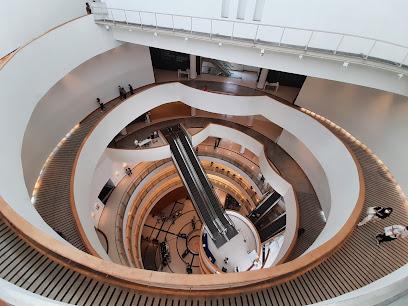
Suan Luang Rama IX
Explore the beauty of nature and culture at Suan Luang Rama IX, Bangkok's largest state park, featuring lush gardens, serene lakes, and cultural exhibitions.
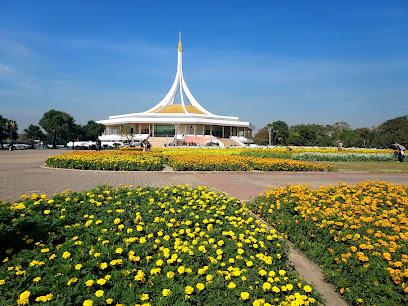
Chinatown Bangkok
Experience the bustling energy and rich flavors of Chinatown Bangkok, a cultural gem filled with street food, markets, and history.
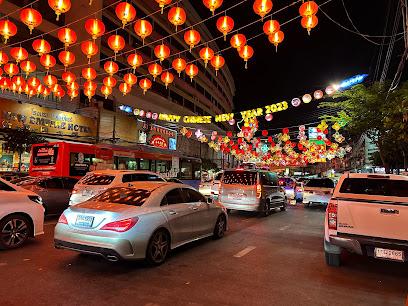
Dream World
Experience the magic of Dream World, Thailand's ultimate amusement park filled with exhilarating rides and enchanting attractions for all ages.
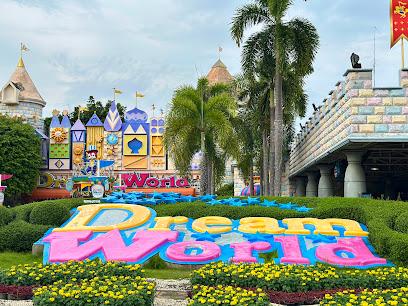
Essential places to dine
Thipsamai
Experience the best Pad Thai in Bangkok at Thipsamai—where authentic flavors meet vibrant dining!
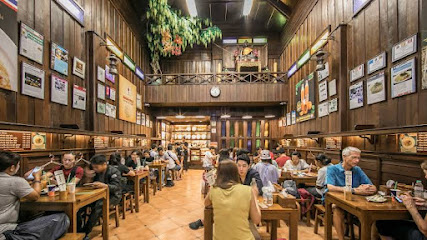
Raan Jay Fai
Explore authentic Thai cuisine at Raan Jay Fai, where culinary tradition meets modern flair in vibrant Bangkok.
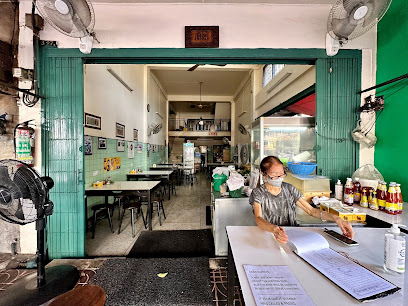
Taste of India Bangkok
Experience authentic Indian cuisine at Taste of India Bangkok—where every dish tells a story through rich flavors and spices.
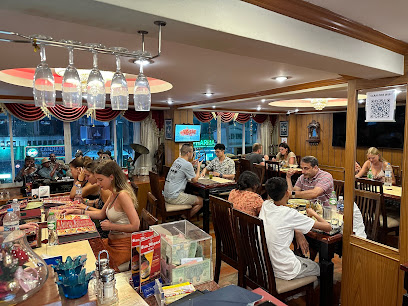
Cabbages & Condoms
Discover authentic Thai cuisine at Cabbages & Condoms - where great food meets social responsibility in the heart of Bangkok.
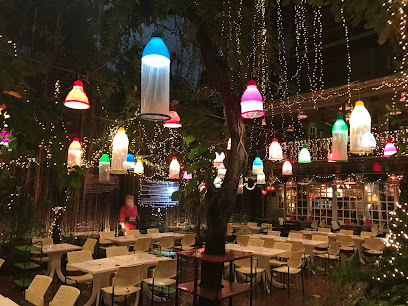
Madame Musur
Experience authentic Thai flavors at Madame Musur in Bangkok—a culinary haven that delights every palate with its rich heritage and welcoming ambiance.
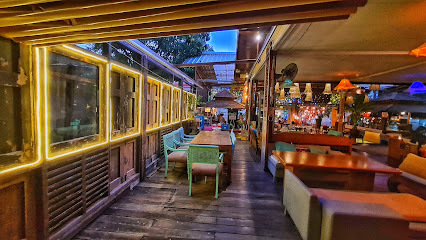
The Family
Experience authentic Thai cuisine at The Family in Bangkok - where every dish tells a story and every visit feels like home.
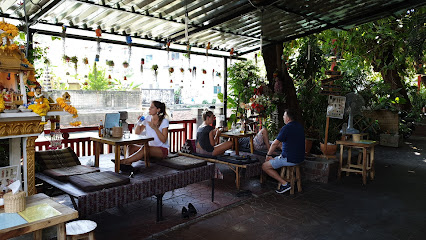
The Gardens of Dinsor Palace
Discover an enchanting blend of European and Thai cuisine amidst lush gardens at The Gardens of Dinsor Palace in Bangkok.
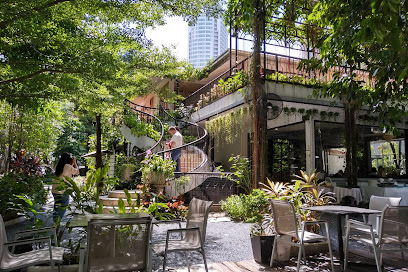
Sühring
Discover authentic German cuisine at Sühring, where tradition meets modern flair in the heart of Bangkok.
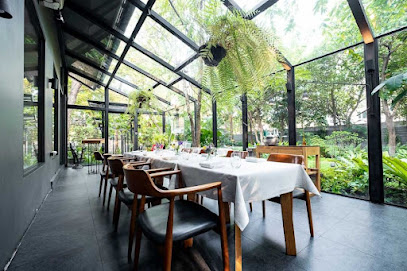
Ranee's
Discover Ranee's in Bangkok: where authentic Italian cuisine meets innovative Asian fusion for an unforgettable dining experience.
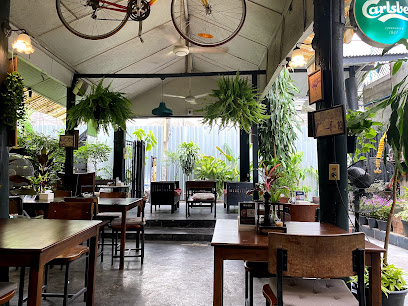
Issaya Siamese Club
Experience exquisite Thai cuisine at Issaya Siamese Club in Bangkok's Sathon district—where tradition meets modern elegance.
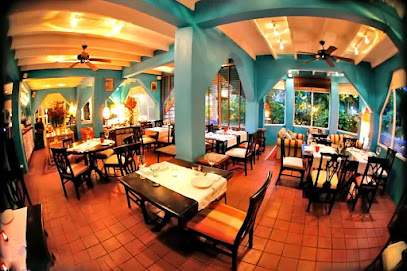
Jok Pochana
Discover authentic Thai cuisine at Jok Pochana, where every dish tells a story of tradition and flavor in the heart of Bangkok.
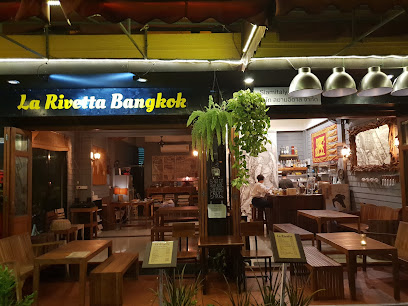
THE SIXTH 6th
Experience the best of Thai cuisine at The Sixth in Bangkok, where tradition meets modern Asian fusion in every delicious bite.
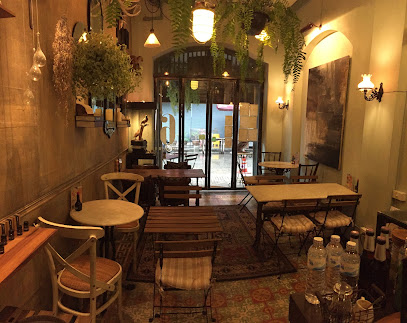
Mit Ko Yuan Restaurant
Experience authentic Thai flavors at Mit Ko Yuan Restaurant - a culinary gem in Bangkok's vibrant food scene.
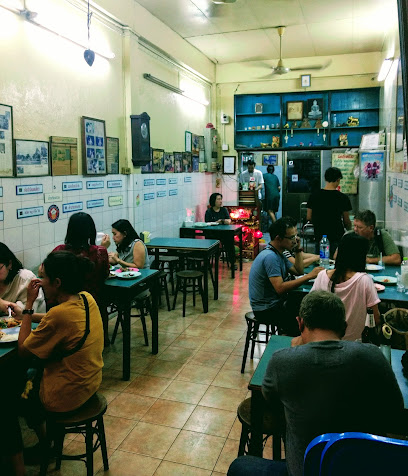
My Darling
Experience the rich flavors of Thailand at My Darling, where authentic cuisine meets a charming ambiance in the heart of Bangkok.
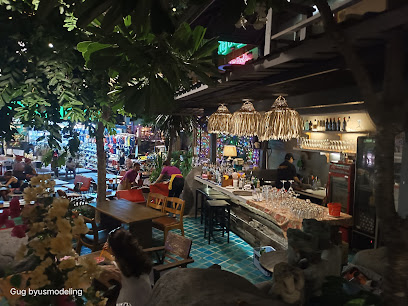
Err Urban Rustic Thai
Experience authentic Thai flavors at Err Urban Rustic Thai in Bangkok - where tradition meets modern dining.
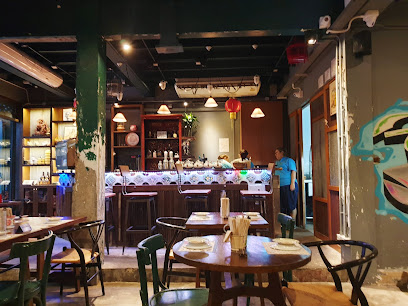
Markets, malls and hidden boutiques
Emporium
Explore Emporium, Bangkok's luxurious department store offering high-end shopping, gourmet dining, and entertainment for an unforgettable experience.
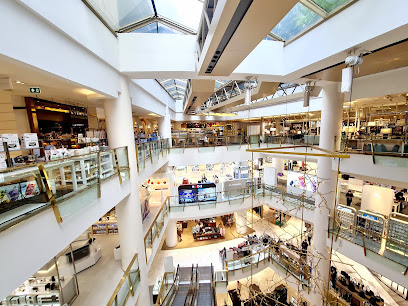
Siwilai Store
Discover the epitome of contemporary fashion at Siwilai Store in Bangkok, where local and global styles merge in an exquisite shopping experience.
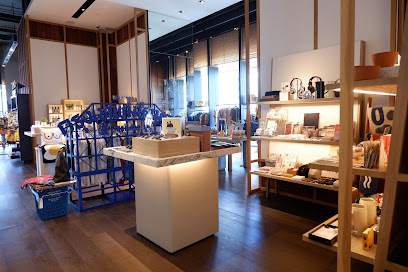
Women's Vintage Clothing by Sugar Cream Vintage
Discover unique vintage clothing at Sugar Cream Vintage in Bangkok's Terminal 21, where timeless fashion meets contemporary flair.
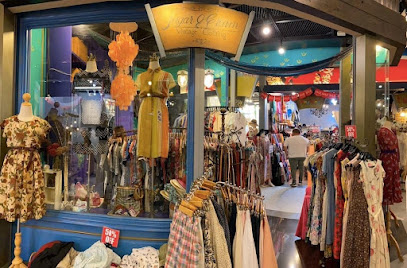
Another Story Concept Store
Explore Another Story Concept Store in Bangkok: a creative hub for unique fashion and lifestyle products in an inspiring setting.
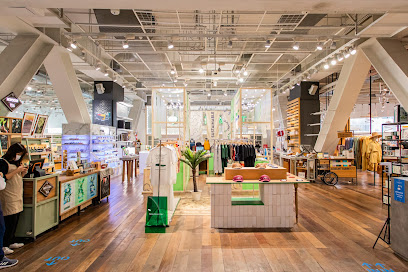
something about us
Explore a vibrant clothing and home goods store in Bangkok, offering unique treasures that reflect the local culture and artistry.
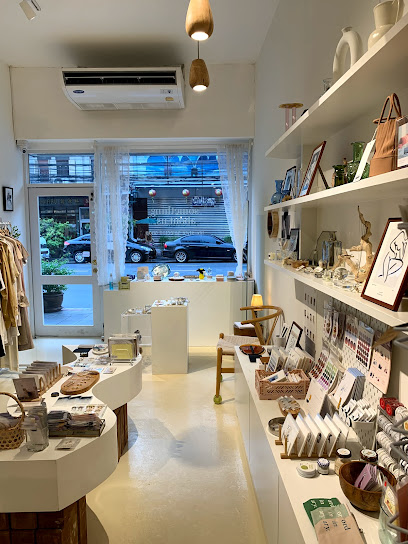
Souvenirs Bangkok
Discover authentic Thai treasures at Souvenirs Bangkok, where culture meets craftsmanship in a charming shopping experience.

Giftchannel
Discover unique souvenirs and local crafts at Giftchannel, Bangkok's vibrant gift shop in the heart of Siam Square, perfect for memorable keepsakes.
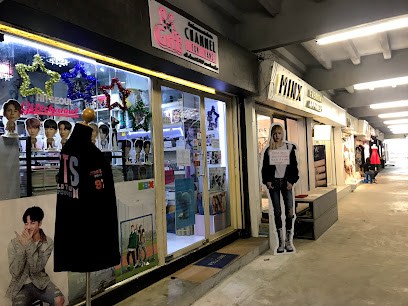
Kon Fai
Discover unique Thai souvenirs at Kon Fai, a charming store by the river in Bangkok's Asiatique, rich in culture and craftsmanship.
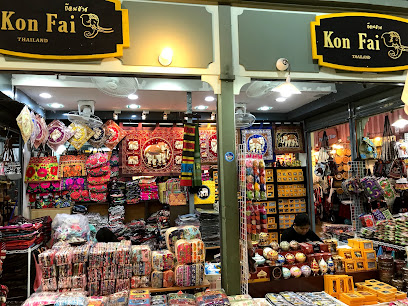
Bloody Bunny & Friends Store @Terminal21, 3th Floor
Explore the enchanting Bloody Bunny & Friends Store at Terminal 21, where delightful gifts and whimsical characters come to life in Bangkok.
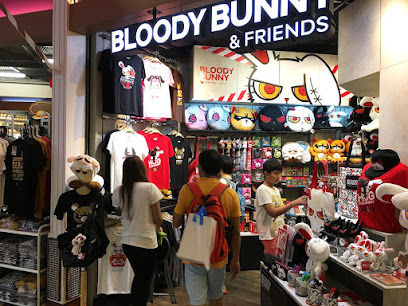
Siam Exotique
Discover authentic Thai souvenirs at Siam Exotique, where craftsmanship meets culture in the heart of Bangkok.
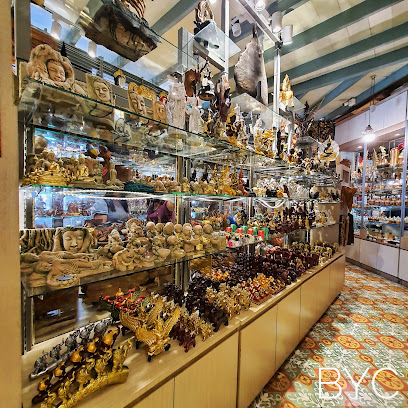
The Vintage Store
Explore The Vintage Store in Bangkok for unique fashion accessories that blend nostalgia with contemporary style, capturing the essence of timeless elegance.
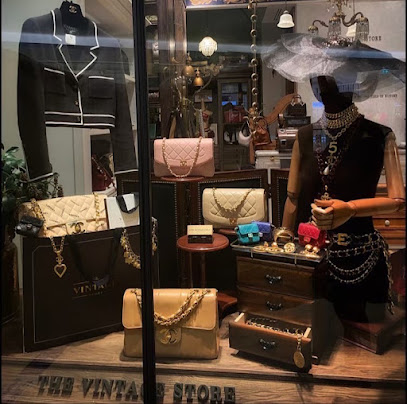
I wanna Bangkok
Discover the vibrant fashion scene of Bangkok at I Wanna Bangkok, where unique styles meet exceptional service in Silom's trendy shopping district.
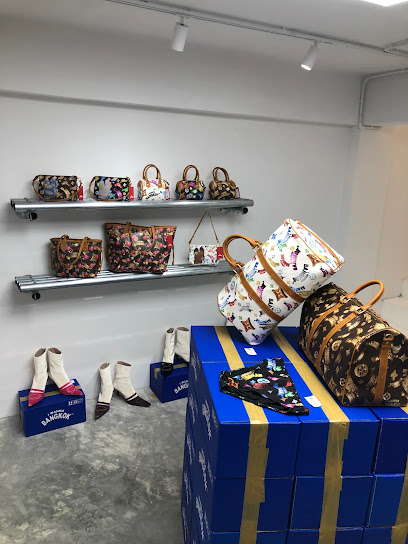
MANO Gallery | Lifestyle, Art, Craft
Explore the creative spirit of Bangkok at MANO Gallery, where lifestyle meets art and craft in a vibrant shopping experience.
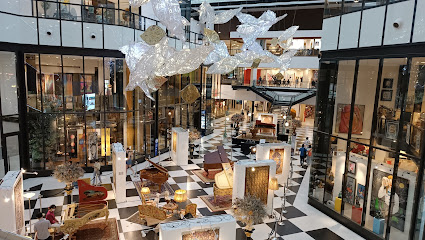
Bangkok Souvenir
Discover unique Thai handicrafts and souvenirs at Bangkok Souvenir, located in the bustling heart of MBK Center, Bangkok, Thailand.

Anothai
Discover the essence of Thai craftsmanship at Anothai, your go-to souvenir store in Bangkok's artistic hub.
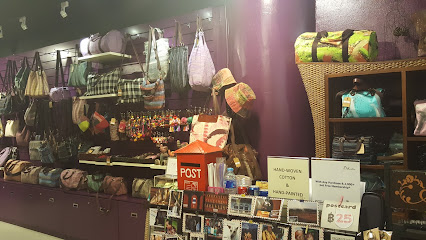
Essential bars & hidden hideouts
Red Sky Bangkok - Rooftop Bar & Restaurant
Experience Bangkok from the clouds at Red Sky, a premier rooftop bar and restaurant offering stunning views and gourmet cuisine.
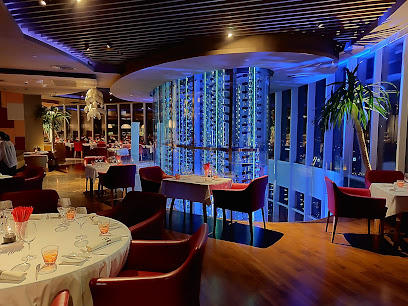
Havana Social
Experience the vibrant spirit of Cuba at Havana Social, Bangkok's premier bar for authentic cocktails and lively nightlife.
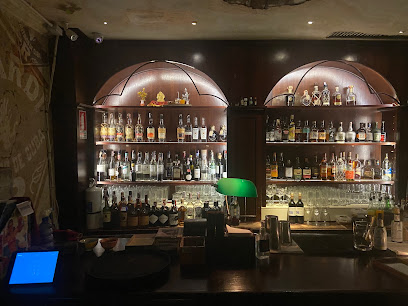
Maggie Choo's
Discover the allure of Maggie Choo's, where live jazz, exquisite cocktails, and a glamorous atmosphere converge in Bangkok's vibrant Silom district.
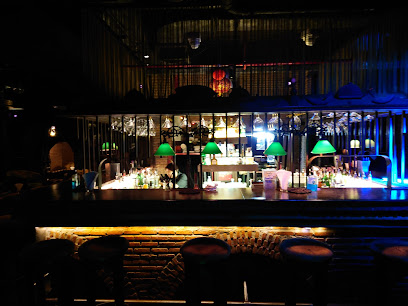
TEP BAR - Cultural Bar of Thailand
Explore TEP BAR in Bangkok, a cultural cocktail bar where Thai tradition meets modern mixology in an unforgettable experience.
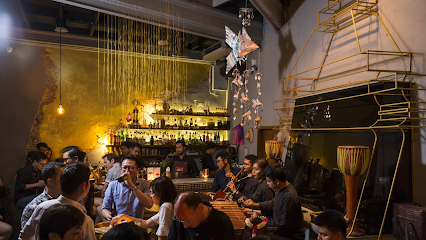
SEEN Restaurant & Bar Bangkok
Indulge in a luxurious rooftop experience at SEEN Restaurant & Bar, where exquisite cocktails meet stunning views of Bangkok's skyline.
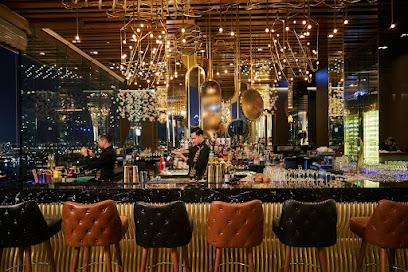
The Bamboo Bar
Experience the allure of The Bamboo Bar, where exquisite cocktails meet live jazz in a luxurious riverside setting in Bangkok.
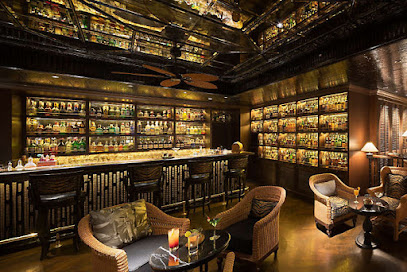
The Speakeasy Rooftop Bar
Experience Bangkok's nightlife at The Speakeasy Rooftop Bar, where stunning city views and expertly crafted cocktails await.

Vesper
Discover Vesper, Bangkok's premier cocktail bar offering a fusion of exquisite drinks and a chic atmosphere in the heart of Silom.
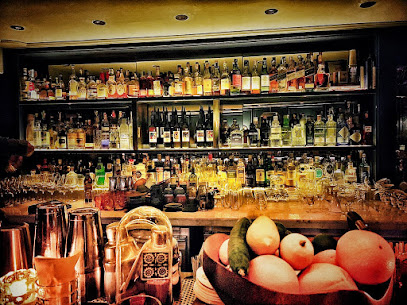
Rabbit Hole
Discover Rabbit Hole, Bangkok's premier cocktail bar offering unique drinks in a stylish, intimate setting for the perfect night out.
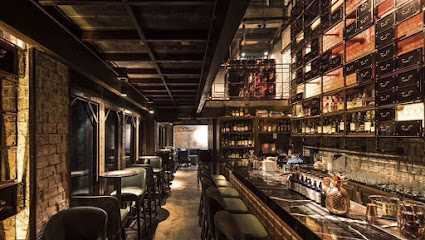
Smalls Bar & Live Music
Discover the enchanting atmosphere of Smalls Bar & Live Music, where captivating jazz and expertly crafted cocktails await in Bangkok's vibrant nightlife.
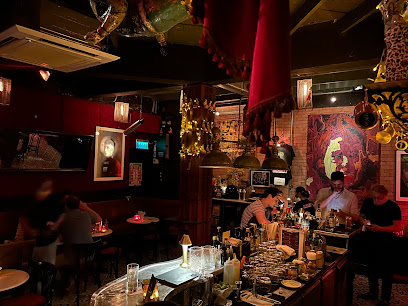
Revolucion Cocktail
Experience Bangkok's nightlife at Revolucion Cocktail, where innovative drinks and delicious tapas come together in a vibrant atmosphere.
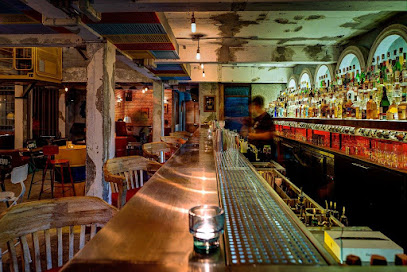
Mojjo Rooftop Lounge Bar
Experience breathtaking views and exquisite cocktails at Mojjo Rooftop Lounge Bar, a premier destination in Bangkok's skyline.
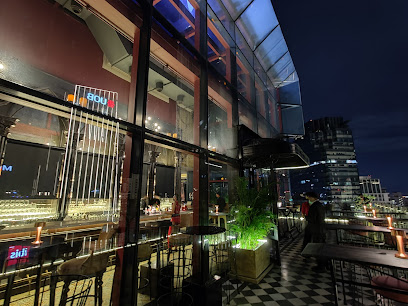
Bar.Yard
Experience the vibrant nightlife at Bar.Yard, a rooftop bar in Bangkok offering stunning views, crafted cocktails, and an unforgettable atmosphere.
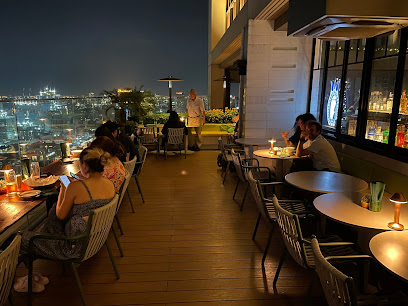
J.Boroski
Discover bespoke cocktails and a chic atmosphere at J.Boroski, Bangkok's premier destination for cocktail enthusiasts.
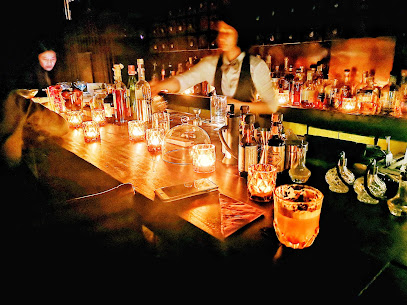
Local Phrases
-
- Helloสวัสดี
[sawatdee] - Goodbyeลาก่อน
[laa kon] - Yesใช่
[chai] - Noไม่
[mai] - Please/You're welcomeโปรด/ยินดี
[proht/yindee] - Thank youขอบคุณ
[kob khun] - Excuse me/Sorryขอโทษ
[khor toht] - How are you?สุขสันต์ไหม
[suk san mai] - Fine. And you?สบายดี คุณล่ะ
[sabai dee kun la] - Do you speak English?คุณพูดภาษาอังกฤษได้ไหม
[kun poot pah saa anggrit dai mai] - I don't understandฉันไม่เข้าใจ
[chan mai khao jai]
- Helloสวัสดี
-
- I'd like to see the menu, pleaseฉันอยากดูเมนู ขอบคุณ
[chan yahk du menu kohb khun] - I don't eat meatฉันไม่กินเนื้อ
[chan mai gin neuua] - Cheers!ชัย!
[chai!] - I would like to pay, pleaseฉันอยากจ่ายเงิน ขอบคุณ
[chan yahk jai ngern kohb khun]
- I'd like to see the menu, pleaseฉันอยากดูเมนู ขอบคุณ
-
- Help!ช่วยด้วย!
[chuai duay!] - Go away!ไปไกลๆ!
[bpai glai glai!] - Call the Police!โทรตำรวจ!
[tor tamruat!] - Call a doctor!โทรหมอ!
[tor mor!] - I'm lostฉันหลงทาง
[chan long tang] - I'm illฉันไม่สบาย
[chan mai sabai]
- Help!ช่วยด้วย!
-
- I'd like to buy...ฉันอยากซื้อ...
[chan yahk seuu...] - I'm just lookingฉันเพียงแค่ดู
[chan piang kae duu] - How much is it?ราคาเท่าไหร่
[raa kha thao rai] - That's too expensiveแพงเกินไป
[paeng geen bai] - Can you lower the price?ลดราคาได้ไหม
[lot raa kha dai mai]
- I'd like to buy...ฉันอยากซื้อ...
-
- What time is it?ตอนนี้กี่โมง
[ton nee kee mong] - It's one o'clockเป็นโมงเดียว
[pen mong diao] - Half past (10)สามสิบครึ่ง
[sam sip khrung] - Morningเช้า
[chao] - Afternoonบ่าย
[bai] - Eveningเย็น
[yen] - Yesterdayเมื่อวาน
[meua waan] - Todayวันนี้
[wan nee] - Tomorrowพรุ่งนี้
[phrung nee] - 1หนึ่ง
[neung] - 2สอง
[song] - 3สาม
[sam] - 4สี่
[si] - 5ห้า
[ha] - 6หก
[hok] - 7เจ็ด
[chet] - 8แปด
[paet] - 9เก้า
[kao] - 10สิบ
[sip]
- What time is it?ตอนนี้กี่โมง
-
- Where's a/the...?...อยู่ที่ไหน
[yoo tee nai] - What's the address?ที่อยู่คืออะไร
[tee yoo keu arai] - Can you show me (on the map)?แสดงให้ฉันดูได้ไหม
[sa daeng hai chan duu dai mai] - When's the next (bus)?รถเมลลูกถัดไปเวลาเท่าไหร่
[rot mel luk tat bai welaa thao rai] - A ticket (to ....)บัตรเข้าชมไป...
[bat khao chom bai...]
- Where's a/the...?...อยู่ที่ไหน
History of Bangkok
-
Bangkok, known in Thai as Krung Thep Maha Nakhon, meaning 'City of Angels', was officially founded in 1782 by King Rama I. The city was established as the new capital of the Kingdom of Siam after the fall of Ayutthaya to Burmese invaders. The strategic location along the Chao Phraya River made it an ideal spot for trade and defense.
-
The Chakri Dynasty, which began with King Rama I in 1782, has played a crucial role in shaping Bangkok’s history. The dynasty has seen the transformation of Bangkok from a small trading post into a bustling metropolis. Significant contributions include the construction of the Grand Palace and the Temple of the Emerald Buddha, which remain central to Thai culture and history.
-
Built in 1782, the Grand Palace served as the royal residence until 1925. Within its grounds lies Wat Phra Kaew, the Temple of the Emerald Buddha, one of the most sacred sites in Thailand. The temple houses a revered Emerald Buddha statue, which has a significant role in Thai religious and cultural practices.
-
During the 19th and early 20th centuries, Bangkok witnessed increased Western influence as European powers expanded their presence in Asia. King Mongkut (Rama IV) and his son King Chulalongkorn (Rama V) embraced modernization efforts, including infrastructure improvements, the abolition of slavery, and the establishment of relations with Western countries.
-
During World War II, Bangkok was occupied by Japanese forces from 1941 to 1945. The city was used as a strategic base, and the Thai government, under Field Marshal Plaek Phibunsongkhram, allied with Japan. The period was marked by economic hardships and bombings by Allied forces.
-
Following World War II, Bangkok underwent rapid modernization and economic development. The city expanded its infrastructure, including the construction of roads, bridges, and skyscrapers. The introduction of the Bangkok Skytrain (BTS) in 1999 marked a significant milestone in the city's transportation network, alleviating traffic congestion and improving mobility.
-
Bangkok is rich in cultural landmarks and festivals that reflect its heritage. Notable sites include Wat Arun (Temple of Dawn), Wat Pho (Temple of the Reclining Buddha), and the bustling Chatuchak Weekend Market. Festivals such as Songkran (Thai New Year) and Loy Krathong (Festival of Lights) offer immersive experiences into Thai traditions and community spirit.
-
Bangkok has been at the center of Thailand's political landscape, witnessing numerous coups, protests, and reforms. The city continues to evolve, balancing its rich historical heritage with rapid urban development. Modern Bangkok is a vibrant metropolis, known for its dynamic street life, diverse cuisine, and thriving arts scene.
Bangkok Essentials
-
Bangkok is served by two major airports: Suvarnabhumi Airport (BKK) and Don Mueang International Airport (DMK). Suvarnabhumi is the main international gateway, while Don Mueang primarily handles low-cost and domestic flights. Both airports are well-connected to the city center via public transport, taxis, and ride-sharing services. The Airport Rail Link connects Suvarnabhumi to the city, offering a convenient and affordable way to reach downtown Bangkok.
-
Bangkok offers a variety of transportation options including the BTS Skytrain, MRT subway, buses, taxis, tuk-tuks, and riverboats. The BTS and MRT are efficient ways to navigate the city, avoiding traffic congestion. Taxis are plentiful but make sure the driver uses the meter. Tuk-tuks are an iconic mode of transport but often require negotiation on fare. Riverboats provide a scenic option to traverse the city along the Chao Phraya River.
-
The official currency in Thailand is the Thai Baht (THB). Credit and debit cards are widely accepted in hotels, restaurants, and larger retail stores. However, cash is still king in smaller establishments and markets. ATMs are abundant throughout the city, and currency exchange services are available at airports, hotels, and malls. It's advisable to carry some cash, especially for street food and local markets.
-
Bangkok is generally safe for tourists, but it's important to remain vigilant. Areas such as Khao San Road and Patpong can have higher crime rates targeting tourists, such as pickpocketing and scams. Avoid walking alone late at night in unfamiliar areas. Always keep an eye on your belongings in crowded places and be cautious of overly friendly strangers offering unsolicited assistance.
-
In case of emergency, dial 191 for police assistance or 1669 for medical emergencies. Major hospitals like Bumrungrad and Bangkok Hospital have English-speaking staff and provide high-quality care. Pharmacies are widespread and can provide over-the-counter medications for minor health issues. It's advisable to have travel insurance that covers medical emergencies. Keep a note of your embassy's contact details in case you need assistance.
-
Fashion: Do dress modestly, especially when visiting temples. Shoulders and knees should be covered. Avoid overly revealing clothing. Religion: Do respect local customs. Always remove your shoes before entering temples and avoid touching religious artifacts. Public Transport: Do be polite and give up your seat to monks, elderly, and pregnant women. Don't eat or drink on public transport. Greetings: Do greet people with a 'wai,' a slight bow with hands pressed together. Eating & Drinking: Do try local street food but ensure it's from a busy vendor to ensure freshness. Don't point your feet at people or religious objects.
-
To experience Bangkok like a local, explore the city's many night markets like Talad Rot Fai and Chatuchak Weekend Market for unique finds and delicious street food. Use local public transport such as the riverboats for a different perspective of the city. Visit lesser-known temples like Wat Saket for a quieter experience. Engage with locals; they are generally friendly and willing to share their culture and traditions. Don't miss trying Thai iced tea and mango sticky rice from street vendors.
Trending Landmark in Bangkok
-
The Grand Palace
-
Chatuchak Weekend Market
-
Wat Arun Ratchawararam Ratchawaramahawihan
-
The Temple of the Emerald Buddha
-
Lumphini Park
-
Wat Phra Chetuphon Wimon Mangkhalaram Rajwaramahawihan
-
Sanam Luang
-
Wat Traimit Withayaram Worawihan (Golden Buddha)
-
King Power Mahanakhon
-
SEA LIFE Bangkok Ocean World
-
Bangkok Art and Culture Centre
-
Jim Thompson House Museum
-
Victory Monument
-
Bangkok City Pillar Shrine
-
Wat Suthat Thepwararam Ratchaworamahawihan
Nearby Cities to Bangkok
-
Things To Do in Samut Prakan
-
Things To Do in Ayutthaya
-
Things To Do in Pattaya
-
Things To Do in Kanchanaburi
-
Things To Do in Hua Hin
-
Things To Do in Rayong
-
Things To Do in Nakhon Ratchasima
-
Things To Do in Trat
-
Things To Do in Battambang
-
Things To Do in Koh Kong
-
Things To Do in Siem Reap
-
Things To Do in Sukhothai
-
Things To Do in Chumphon
-
Things To Do in Loei
-
Things To Do in Koh Rong






















